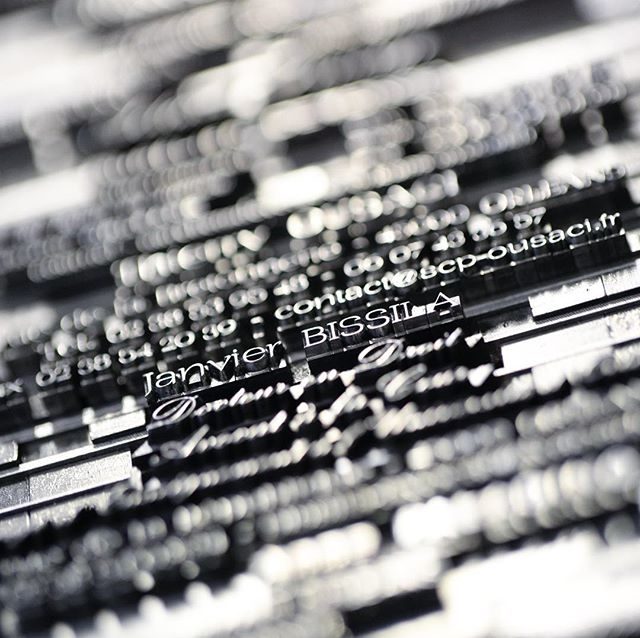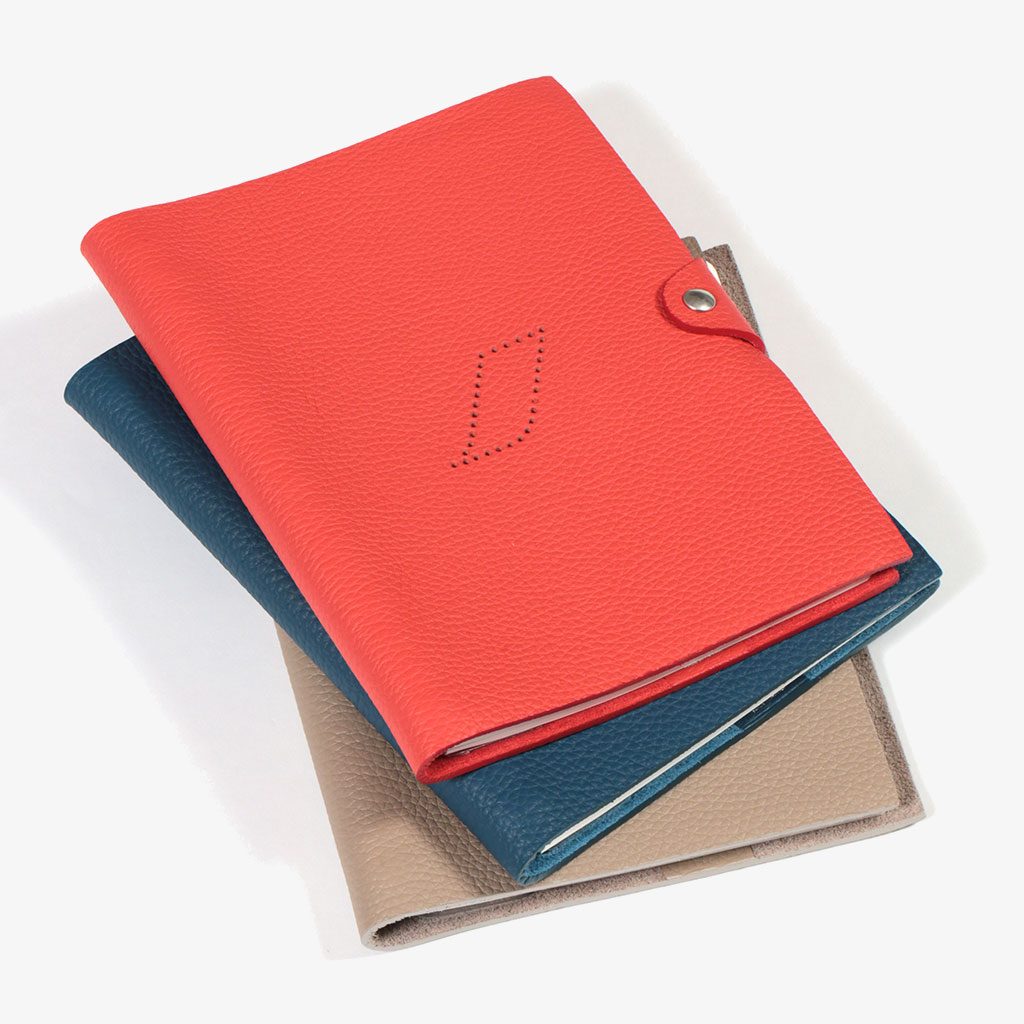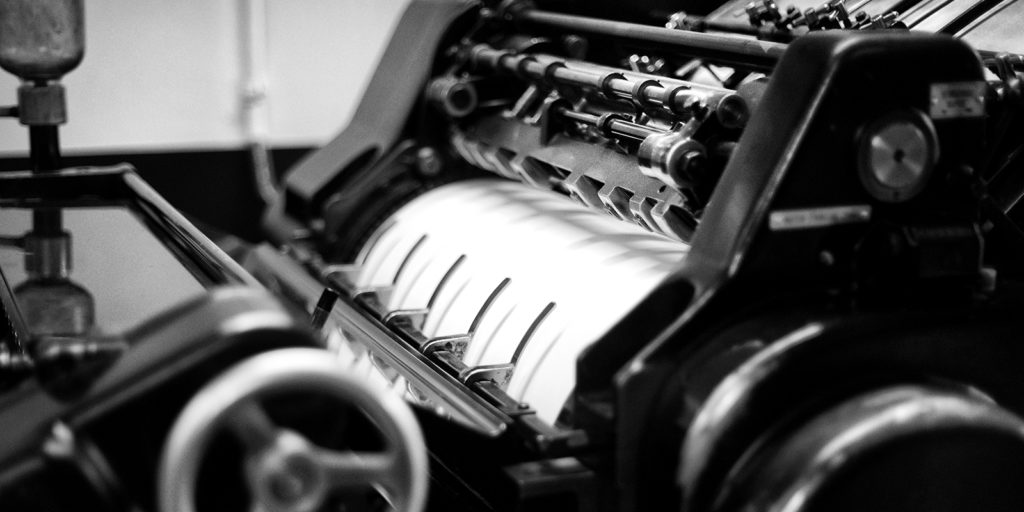Since ancient Egypt, when they engraved on stone and wrote on papyrus, humans have always sought out means to remember, to communicate, and especially, to express themselves.
It therefore stands to reason that man has devoted so much of his time and knowledge to developing these means of expression and regularly seeking out improvements in technique and technology. This impulse allowed the first practitioners, the Chinese, to spread Buddhism and the essence of their culture. Beginning in the Far East, methods of manual print crossed time and place, beginning the expansion towards the west with the Mongolians and Arabs. It was then in Europe that the printing press would take its first turn, with the manufacture of books replacing tomes and the arrival of paper which replaced parchment. The final revolution of printing would be in 1450 with Gutenberg developing moveable type, a process allowing the use of individual metal characters and giving birth to modern typography.

Though this know-how goes back to the darkest of ages, it has always illuminated the way forward, teaching the denizens of the times new ways of thinking and communicating.
Print on paper is an art that awakens almost all the senses: the sight of its diverse and varied characters and colors, the sound of the man and the machine at work, the touch of its subtle and unique texture, and finally the smell of the delicate scents of ink and metal.

The only essential knowledge is that which we have: the craft of printmaking. The work of meticulous and studied knowledge; art in the truest sense.
Great artisanal talent is essential; the techniques of printing and the know-how of the craftsmen constantly developing over time in order to always adapt to the needs of contemporaneous society. The creative spirit and the ancestral know-how of our craftsmen allow the joining of many trades, such as the leather goods and of course print, in creating pieces that are unsurpassingly luxurious and unique.

